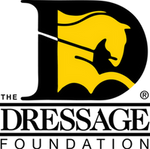The goal of TDF’s Violet Hopkins Fund is to help USDF Group Member Organizations provide affordable, high-quality dressage education to riders in their areas. Violet Hopkins entrusted her estate to TDF to continue her legacy of teaching and helping others, so TDF has a high interest in ensuring that the principle of the Violet Hopkins Fund is sustained for many years. With that in mind, not every grant application will be selected for funding. Please review the following guidelines to determine if your event meets the qualifications for a grant, and take this information into consideration when planning your event.
Types of programs supported:
-
Educational events such as clinics, camps, symposiums
-
Educational lectures and seminars
-
Sessions A, B, C of the USDF 'L' Education Programs
-
USDF Instructor Certification Program workshops
-
Programs to support youth
Preference is given to programs that focus on the auditor or are intensive learning experiences (such as camps).
General Requirements:
-
Applications must be submitted by a USDF GMO.
-
Applications must be received by The Dressage Foundation at least 75 days before the planned event.
-
Chapters of larger GMOs may apply in the same manner as a GMO.
-
A "new" GMO must have at least 6 months of history before the Grant Selection Committee entertains any funding requests. This gives a new group time to organize, delegate, plan, and fund raise.
-
Grant funds should only be used to support the educational part of the program and should not be used to purchase food, goodie bags, vests/t-shirts, etc.
-
Grants from the Hopkins Fund may not be used for the GMO to make a profit. Excess income should be returned to The Dressage Foundation, to be put back into the Hopkins Fund.
The Grant Selection Committee is interested in funding educational events that appeal to a wide audience of riders and auditors. Your program should not merely consist of individual riding lessons at a reduced price. In order to present your application in the best way, review these following guidelines of an "ideal" program:
Programs:
-
All events should be interactive in nature, with special attention paid to auditors.
-
A scheduled lecture on basic theory, presented in the form of a formal presentation, is required. Lectures and demonstrations held throughout the event are ideal. Sample topics include (but are not limited to): the Training Scale, horse and rider psychology, saddle fitting, horse anatomy, correct ring figures, and equestrian/dressage history.
-
Choose a "theme" for the clinic, such as Suppleness, Straightness, Collection, etc.
-
Have riders from specific groups (Junior/Young Riders, Amateurs, High Performance) participate in the clinic, to demonstrate low, mid, and high level rides.
Instructors:
-
Preference will be given to groups that work with a USDF Certified Instructor.
-
Instructors are the core of any program and need to be selected carefully.
-
The chosen instructor does not necessarily need to be a "big name," but should have an established teaching record. Select an instructor that will be a good fit for the participants in your event.
-
Any instructor should place emphasis on correct basics.
-
Select an instructor who will provide an all-around high quality program. He/she should be able to present a well-planned lecture and be able to interact effectively with the riders and auditors.
Budget:
-
Providing a clear, detailed budget is an important part of the application process. Make sure your numbers add up correctly!
-
Show that you have genuine need for a grant, but indicate how your group is working to keep the budget reasonable.
-
Income (rider/auditor fees) - We expect that you will keep the fees at a rate that will encourage people to attend, but at the same time, make sure that the majority of expenses can be covered. The Foundation requires that auditors pay a fee, which validates that auditing is a valuable educational tool. Is your GMO able to contribute to the event? Consider planning a fundraiser to help cover some expenses.
-
Expenses - Selection of the instructor will greatly influence the total cost of the event. Negotiate a reasonable fee with the instructor, and find ways to minimize other instructor-related expenses (find a member to donate lodging, meals, etc.). Increase the participant/auditor fees to cover the cost of any food expense, or seek out a meal sponsor. Also look for other ways to decrease the costs for other items related to the clinic.
-
Instructor Fees – Selection of the instructor will greatly influence the total cost of the event. The Hopkins Fund Committee encourages you to negotiate a reasonable fee with the instructor, which might be flexible depending on the time of year, how many riders you will have, or your location. Define transportation and accommodation expectations with the instructor – you might want to cap the amount your group will pay, or someone in your group might want to make the flight arrangements to ensure that costs stay within your budget.
-
Grant amounts from the Hopkins Fund may be limited if it appears that clinic expenses, including the instructor fee, are above what is considered typical for the type of event being held and the number of riders and auditors participating.
Planning Tips:
-
Prior to signing a contract with a clinician, have a detailed discussion about ways to provide value to riders and auditors. How will the entire event be interactive?
-
Help the clinician arrange for ways to present a multi-media lecture with DVDs, slides, handouts, etc.
-
Have a good-quality sound system available for all parts of the clinic. Auditors won't be able to learn if they can't hear what the clinician is telling the riders.
Please present a clear, thorough, and thoughtful application! Be aware that the Selection Committee is looking to support programs that encompass the above items, as these types of events will provide your attendees with the greatest learning experience!
